Understanding Different Types of Quilting Threads
Quilting is not just a craft; it's an art form that tells a story through fabric, color, and texture. One of the most crucial elements in creating a stunning quilt is the choice of thread. With a plethora of options available, understanding the different types of quilting threads can significantly enhance both the quality and durability of your work. So, why does the type of thread matter? Well, think of it as the backbone of your quilting project. The right thread can make your stitches pop, hold your layers together, and even add that extra flair to your finished piece. In this article, we will dive deep into the world of quilting threads, exploring their characteristics, benefits, and how to choose the right one for your projects. Whether you're a seasoned quilter or just starting out, this guide will help you navigate the thread aisle like a pro!
Cotton threads are the bread and butter of the quilting world. Known for their versatility and natural fibers, they are a favorite among quilters for a reason. Cotton threads come in various weights and finishes, allowing you to select the perfect match for your project. The benefits of using cotton threads include their ability to absorb dye beautifully, providing vibrant colors that last wash after wash. Plus, they have a natural sheen that adds a touch of elegance to any quilt.
When it comes to types, you’ll find options like 40-weight threads for general piecing and quilting, and 50-weight threads that are perfect for delicate stitching. Cotton threads are also available in various finishes, including mercerized and unmercerized, each offering unique characteristics that can influence the final look of your quilt.
Best uses for cotton threads include:
- Piecing fabrics together
- Quilting with a traditional feel
- Creating appliqué designs
So, if you're aiming for a classic look with a modern twist, cotton threads are your go-to option!
On the flip side, we have polyester threads, which are celebrated for their strength and durability. If you're looking for threads that can withstand the test of time, polyester is the way to go. They are less likely to fray or break, making them ideal for various quilting techniques. Imagine trying to piece together a quilt only to have your thread snap mid-stitch—frustrating, right? Polyester threads eliminate that worry!
These threads come in a variety of types, each tailored for specific purposes. For instance, some are designed for everyday quilting, while others are specialty threads that create unique effects. Let’s take a closer look:
Polyester threads can be categorized into several types, including:
- Embroidery Polyester Threads: These threads are perfect for decorative stitching, adding a pop of color and texture to your quilt.
- Heavy-Duty Polyester Threads: Built to handle multiple layers, these threads are ideal for heavy fabrics and projects requiring added durability.
Embroidery polyester threads are a quilter's best friend when it comes to decorative stitching. They are designed to create stunning visual effects, making your quilt stand out. Their vibrant colors and sheen can elevate any project, ensuring that your stitches are not just functional but also a design element.
If you're working with heavy fabrics or tackling projects that require extra strength, heavy-duty polyester threads are your answer. These threads are engineered to withstand the rigors of quilting through multiple layers, ensuring that your quilt remains intact even after years of use.
Blended threads are a fantastic option for quilters looking to combine the benefits of different fibers. These threads often mix cotton and polyester, offering unique characteristics that can enhance your quilting experience. For example, a cotton-polyester blend can provide the softness of cotton while maintaining the strength of polyester, making it a versatile choice for various projects.
Silk threads bring a touch of luxury to your quilting projects. Known for their exquisite feel and natural sheen, silk threads are perfect for adding elegance to your quilts. While they may be more delicate than cotton or polyester, the stunning finish they provide is well worth the extra care. Silk threads are often used in special projects, such as heirloom quilts or intricate designs, where the quality of the thread can truly shine.
To keep your silk threads in optimal condition, proper care and maintenance are essential. Here are some tips:
- Store silk threads in a cool, dry place to prevent damage.
- Avoid exposing them to direct sunlight, which can fade their colors.
- Handle with care to prevent tangling and breakage.
Lastly, let’s not forget about specialty threads. These include metallic and variegated options that can add unique touches to your quilting projects. Metallic threads can give your quilt a shimmering effect, while variegated threads create beautiful color transitions throughout your stitches. Incorporating these threads can elevate your work, making it not just a quilt, but a piece of art.
Q: What is the best thread for quilting?
A: The best thread depends on your project. Cotton threads are great for traditional quilts, while polyester is ideal for durability.
Q: Can I mix different types of threads?
A: Yes, but be mindful of the thread tension and needle compatibility to avoid issues.
Q: How do I care for my threads?
A: Store them in a cool, dry place and avoid direct sunlight for longevity.
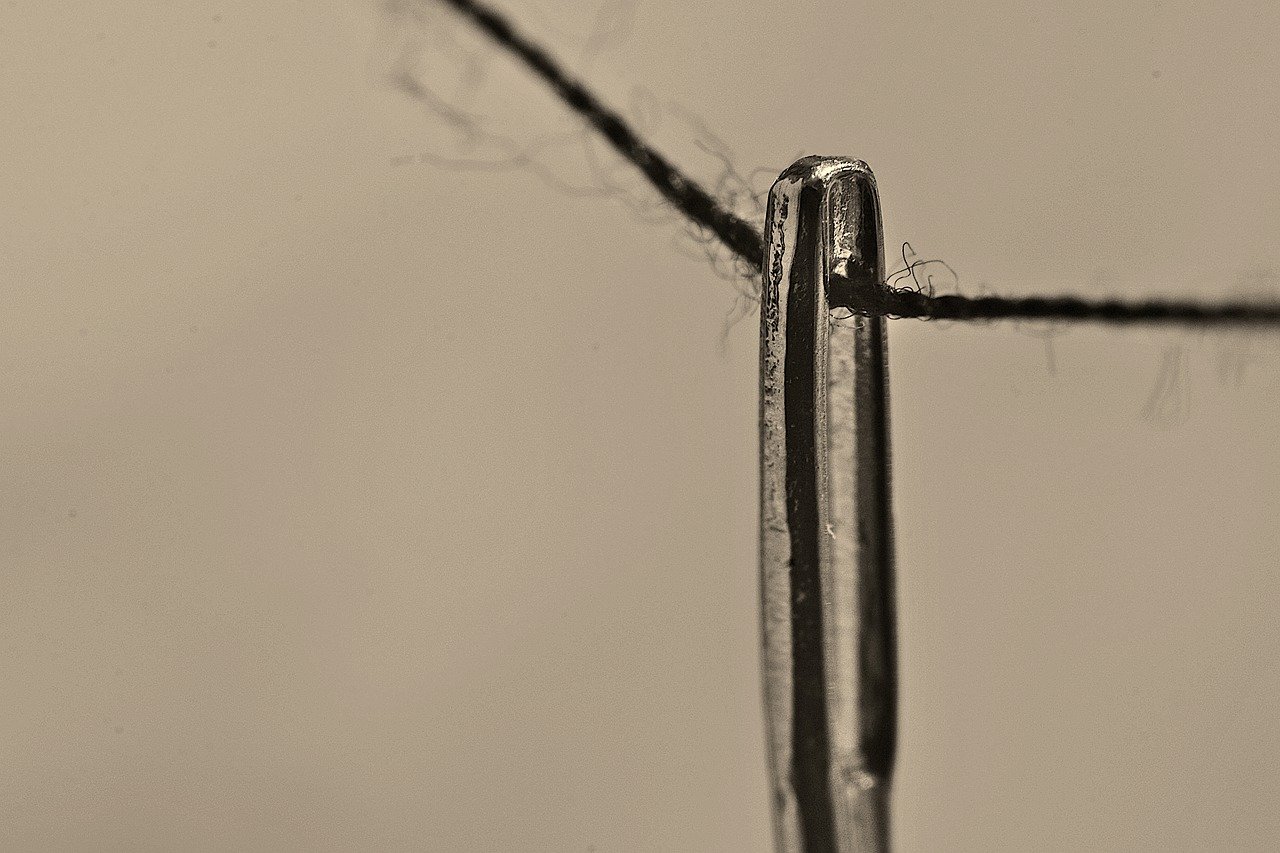
Cotton Threads
Cotton threads are a quilter's best friend. Their popularity stems from their versatility and the natural fibers they are made from, making them an excellent choice for a wide range of quilting projects. When you think of cotton threads, imagine the soft touch and the beautiful finish they can bring to your quilts. They are available in different weights and types, allowing you to choose the perfect thread for your specific needs.
One of the major benefits of using cotton threads is their breathability. This characteristic makes them ideal for quilts that will be used frequently, as they can withstand washing and maintain their integrity over time. Additionally, cotton threads come in a variety of colors, ensuring that you can find the perfect shade to match your fabric. Whether you're going for a classic look or something more vibrant, cotton threads have you covered.
There are several types of cotton threads available, each with unique characteristics:
- Regular Cotton Thread: This is the most common type of cotton thread, suitable for general quilting and sewing.
- Cotton Batting Thread: Specifically designed for quilting through multiple layers, providing extra strength.
- Long-Staple Cotton Thread: Made from longer fibers, this thread is less prone to fraying and breaking.
When selecting cotton threads for your quilting projects, consider the weight of the thread. The weight can significantly affect the overall look and feel of your quilt. For instance, a heavier thread can provide more texture, while a lighter thread can create a delicate finish. It's essential to match the thread weight with your fabric and the quilting technique you plan to use.
In summary, cotton threads are not only practical but also enhance the visual appeal of your quilts. Their natural fibers, combined with a wide range of colors and types, make them an indispensable tool for any quilter. So, the next time you embark on a quilting project, remember to reach for that trusty cotton thread—it might just be the secret ingredient to elevate your work!
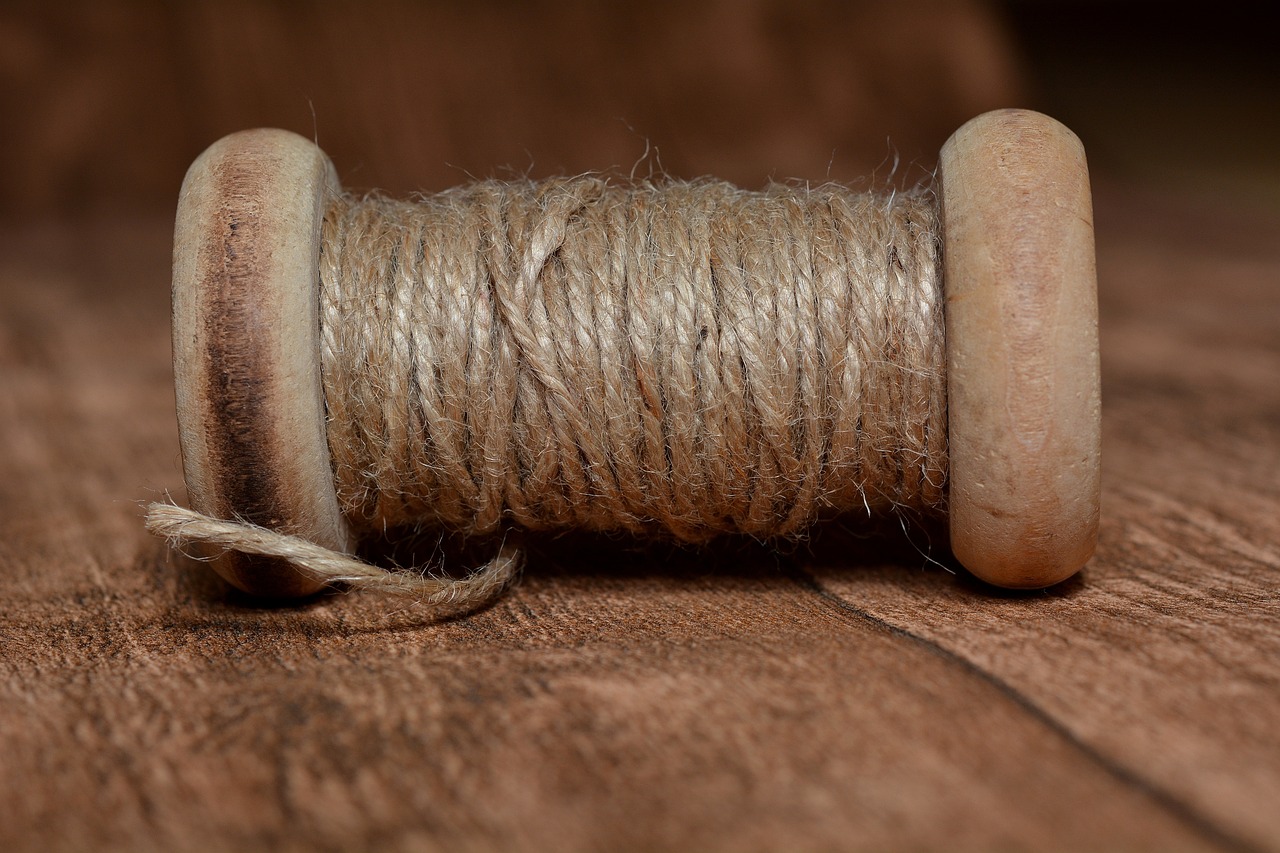
Polyester Threads
When it comes to quilting, are like the unsung heroes of the sewing world. They bring a unique blend of strength and durability to the table, making them a favorite choice for quilters who want their creations to stand the test of time. Unlike cotton, which can sometimes be prone to shrinking or fading, polyester threads maintain their integrity and color, ensuring that your beautiful quilt remains vibrant wash after wash. So, why should you consider using polyester threads in your next quilting project? Let’s dive deeper!
One of the standout features of polyester threads is their resilience. They are less likely to break, fray, or fade compared to their cotton counterparts, making them ideal for various quilting techniques, whether you're piecing together delicate fabrics or tackling heavy-duty projects. This strength is crucial when you’re working with multiple layers of fabric, as it provides the support needed to keep everything in place without compromising the overall look of your quilt.
Additionally, polyester threads come in a variety of weights and finishes, allowing quilters to choose the perfect match for their specific needs. For instance, if you’re looking for a thread that can withstand the rigors of heavy quilting, a heavier weight polyester might be your go-to. Conversely, for intricate designs and fine details, a lighter weight thread can provide the precision you need. Here’s a quick overview of the types of polyester threads available:
| Type of Polyester Thread | Best For | Characteristics |
|---|---|---|
| Standard Polyester | General quilting | Strong, durable, and versatile |
| Embroidery Polyester | Decorative stitching | High sheen, vibrant colors |
| Heavy-Duty Polyester | Thick fabrics | Extra strength for multiple layers |
In addition to their practical benefits, polyester threads also come in an array of colors and finishes, allowing you to unleash your creativity. Whether you want a matte finish for a subtle look or a shiny finish for that extra pop, there’s a polyester thread that can meet your needs. This versatility makes them a fantastic choice for quilters looking to add a personal touch to their projects.
But wait, there’s more! Polyester threads are also easy to care for. They can typically withstand higher temperatures than cotton threads, which means you won’t have to worry about them losing their shape or color when you toss your quilt in the washing machine. This makes them a practical choice for everyday quilts that might see a lot of use.
So, if you’re still on the fence about using polyester threads, consider this: they offer a combination of strength, durability, and versatility that can elevate your quilting game. They’re not just a substitute for cotton; they’re a powerful ally in achieving beautiful, long-lasting results in your quilting projects.
- Can I use polyester thread for hand quilting? Yes, polyester thread is suitable for hand quilting and offers great strength and flexibility.
- How do I choose the right weight of polyester thread? The right weight depends on the fabric you are using and the type of quilting technique. Generally, lighter weights are for finer fabrics, while heavier weights are for thicker materials.
- Will polyester thread affect the look of my quilt? Polyester thread can enhance the look of your quilt with its vibrant colors and finishes, adding a professional touch to your work.
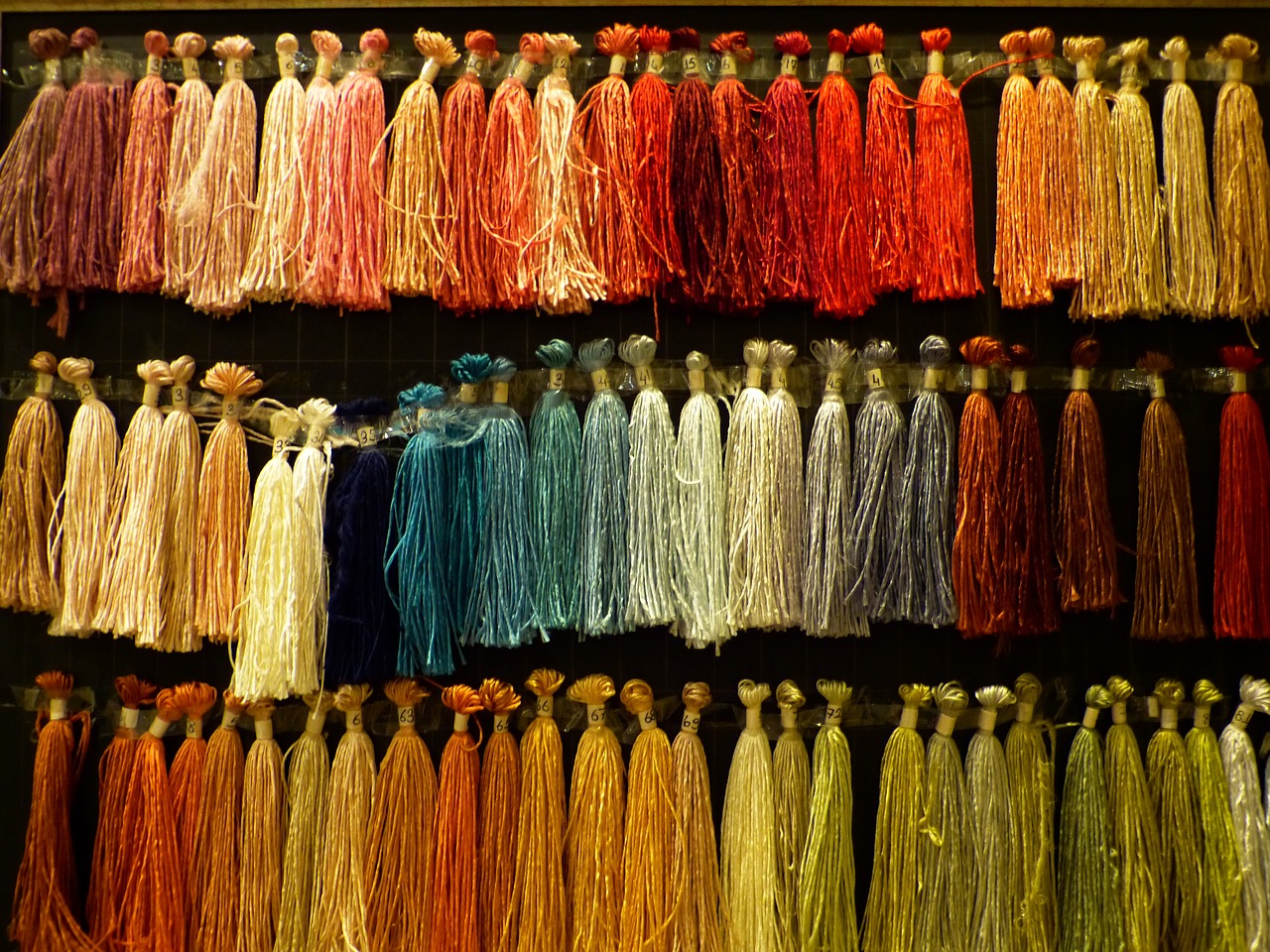
Types of Polyester Threads
When it comes to quilting, polyester threads are not just a single entity; they come in various types, each tailored for specific purposes. Understanding these different types can significantly elevate your quilting game. Imagine walking into a fabric store and being greeted by a rainbow of threads, each promising to add a unique flair to your projects. That’s the magic of polyester threads! From standard sewing threads to specialty options, let's dive into the world of polyester threads and discover what makes each type special.
First off, we have the standard polyester thread, which is a staple in many quilting kits. This thread is known for its strength and versatility, making it suitable for a wide range of quilting techniques. Whether you’re piecing together a quilt top or quilting through multiple layers, this thread holds up beautifully. It’s like the trusty Swiss Army knife of threads—always reliable and ready for any task!
Next, we have embroidery polyester threads. These threads are specifically designed for decorative stitching, adding a touch of artistry to your quilting projects. With their vibrant colors and sheen, embroidery threads can turn a simple quilt into a masterpiece. They are perfect for those who want to experiment with intricate designs and embellishments. Think of them as the jewelry for your quilts, giving them that extra sparkle!
Then, there are heavy-duty polyester threads. As the name suggests, these threads are built for strength. They excel in projects that require sewing through multiple layers of heavy fabrics, such as denim or canvas. If you’re working on a quilt that needs to withstand wear and tear, heavy-duty polyester threads are your best friend. They provide the durability needed to ensure your quilt stands the test of time, much like a sturdy pair of boots on a rugged trail.
Lastly, we have specialty polyester threads, which include options like metallic and variegated threads. These threads are designed to create unique effects that can add depth and interest to your quilting projects. For instance, metallic threads can give your quilt a shimmering finish, while variegated threads can create a beautiful gradient effect. Incorporating these specialty threads is akin to adding a splash of color to a black-and-white photograph—it brings your quilt to life!
In summary, the world of polyester threads is rich and diverse, offering something for every quilter's needs. By understanding the different types available, you can make informed choices that will enhance the quality and aesthetic of your quilting projects. Whether you prefer the reliability of standard threads or the artistic flair of specialty options, there’s a polyester thread out there that’s just right for you.
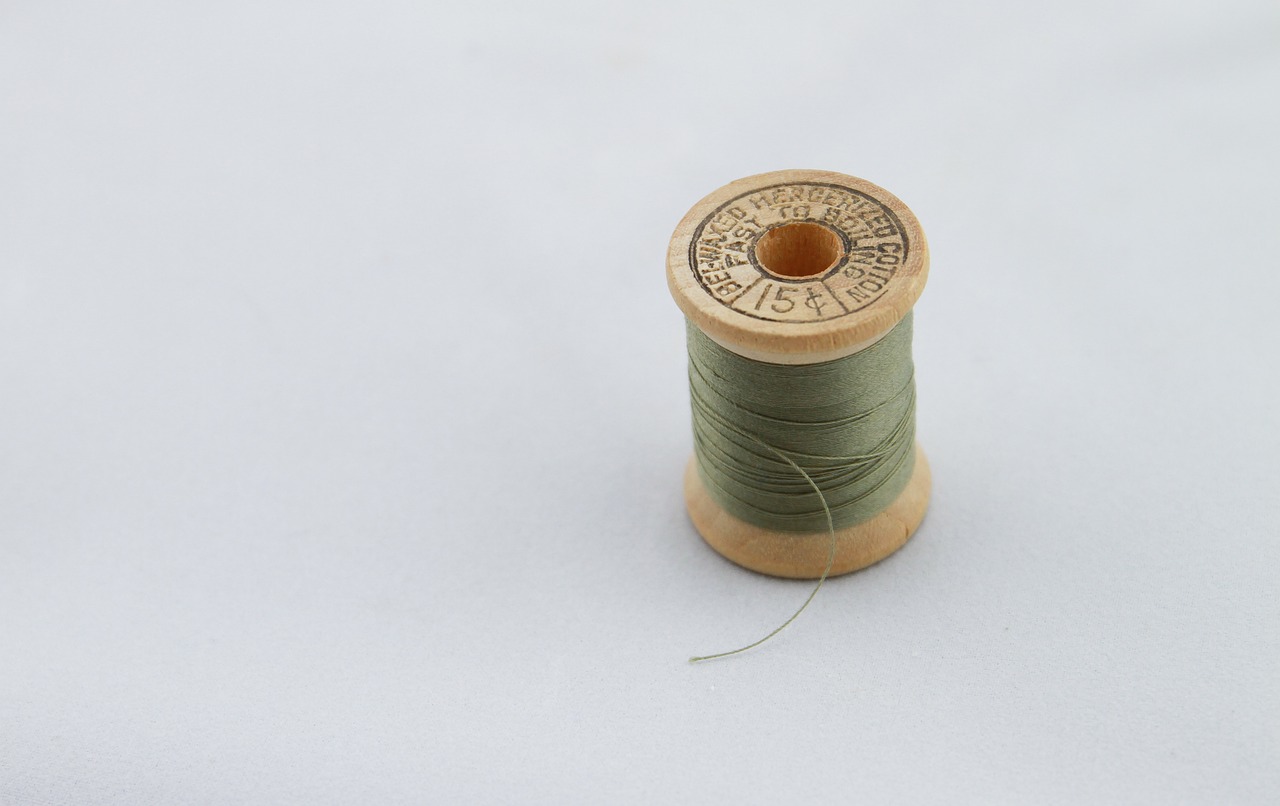
Embroidery Polyester Threads
When it comes to adding a touch of elegance and flair to your quilting projects, are a game changer. These threads are specifically designed for decorative stitching, allowing you to unleash your creativity and transform your quilts into stunning works of art. The beauty of embroidery polyester threads lies not just in their vibrant colors but also in their durability and versatility.
One of the standout features of embroidery polyester threads is their ability to withstand the test of time. Unlike cotton threads that may fade or wear down, polyester threads maintain their luster and strength, ensuring that your intricate designs remain intact for years to come. This makes them an excellent choice for quilts that will be used frequently or displayed prominently.
Embroidery polyester threads come in a variety of weights and finishes, catering to different quilting techniques. For instance, lighter weights are perfect for delicate designs, while heavier weights can be used for bolder, more pronounced stitching. Additionally, these threads are available in both matte and sheen finishes, allowing you to choose the perfect finish for your project. Here’s a quick overview of the different options:
| Thread Weight | Best Uses |
|---|---|
| 30 wt | Heavy decorative stitching, creating bold designs |
| 40 wt | General embroidery, quilting, and decorative stitching |
| 60 wt | Fine details, delicate designs, and intricate work |
Moreover, embroidery polyester threads are less prone to fraying, which means you can stitch with confidence without worrying about your thread breaking mid-design. This reliability is crucial when you’re working on complex patterns or large projects where consistency is key.
When incorporating embroidery polyester threads into your quilting, consider the following tips to maximize their potential:
- Choose the Right Needle: Use a needle that matches the thread's weight to prevent any snags or breaks.
- Adjust Tension: Experiment with your machine's tension settings to ensure smooth stitching.
- Practice on Scraps: Before diving into your main project, practice on scrap fabric to get a feel for how the thread behaves.
In conclusion, embroidery polyester threads are an essential addition to any quilter's toolkit. Their strength, vibrancy, and adaptability make them perfect for a wide range of quilting projects. Whether you’re crafting a cozy quilt for your home or creating a stunning gift, these threads will elevate your work, adding a professional touch that’s sure to impress.
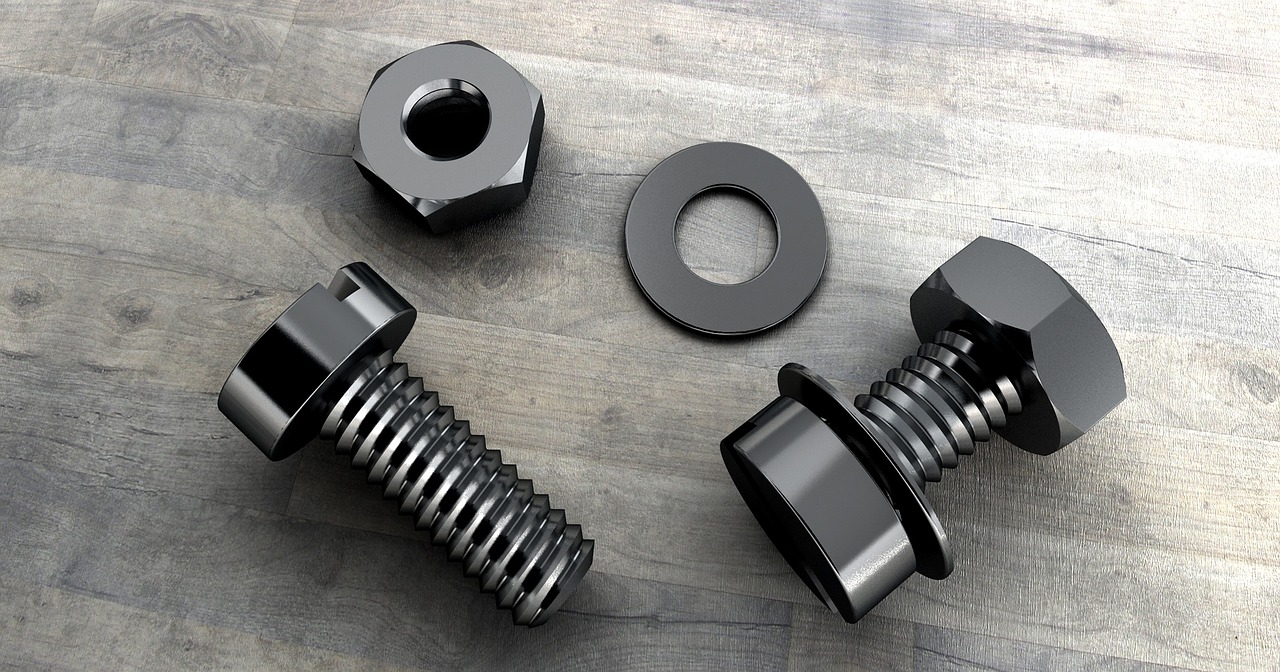
Heavy-Duty Polyester Threads
When it comes to quilting, not all threads are created equal, and that's especially true for . These threads are designed to withstand the rigors of quilting through multiple layers of fabric, making them an essential choice for projects that require extra strength and durability. Imagine trying to sew a thick quilt sandwich with a delicate thread—it's a recipe for frustration! Heavy-duty polyester threads can handle the challenge, providing the kind of robust support that ensures your quilts not only look great but also stand the test of time.
One of the standout features of heavy-duty polyester threads is their exceptional tensile strength. This means they can endure the tension and stress of sewing without breaking, even when you're working with thicker fabrics like denim or multiple layers of batting. This strength is crucial for quilting techniques that require a lot of stitching, such as free-motion quilting or intricate piecing. By choosing heavy-duty polyester, you're essentially giving your quilt the backbone it needs to stay intact and maintain its shape.
Another advantage is the resistance to fraying and fading. Unlike cotton threads that can wear down over time, heavy-duty polyester threads retain their integrity, ensuring that your quilt remains vibrant and intact even after multiple washes. This makes them a popular choice for quilts that will see a lot of use, such as bed quilts or those meant for children's play areas. Plus, they come in a variety of colors, allowing you to match or contrast with your fabric choices seamlessly.
When selecting heavy-duty polyester threads, consider the following options:
- Weight: Choose a weight that suits your project. For example, 40-weight threads are great for general quilting, while 30-weight threads are perfect for decorative stitching.
- Finish: Some threads have a matte finish, while others are shiny. The finish can affect the overall look of your quilt, so choose based on your desired aesthetic.
- Brand: Different brands may offer varying quality, so it’s beneficial to read reviews or seek recommendations from fellow quilters.
In conclusion, heavy-duty polyester threads are a game-changer for quilters looking to create durable, long-lasting projects. They combine strength with versatility, making them suitable for a wide range of quilting techniques and fabric types. So, the next time you're faced with a challenging quilting project, remember that heavy-duty polyester threads might just be the secret ingredient to your success!
Q: Can I use heavy-duty polyester threads for all quilting projects?
A: Yes, heavy-duty polyester threads are versatile and suitable for various quilting projects, especially those involving thicker fabrics or multiple layers.
Q: How do I care for quilts made with heavy-duty polyester threads?
A: Quilts made with heavy-duty polyester threads can typically be machine washed and dried. However, it's always best to follow the care instructions for the specific fabrics used in your quilt.
Q: Are heavy-duty polyester threads more expensive than regular polyester threads?
A: Generally, heavy-duty polyester threads may be slightly more expensive due to their enhanced strength and durability, but they offer great value for the longevity they provide.

Blended Threads
When it comes to quilting, the quest for the perfect thread often leads us down the fascinating path of . These threads are a beautiful marriage of different fibers, combining the strengths of each to create something truly unique. Imagine taking the best qualities of cotton, polyester, and even silk, and weaving them together to form a thread that not only performs well but also enhances the overall aesthetic of your quilting projects. Blended threads can provide a range of benefits, from improved durability to enhanced sheen, making them a popular choice for both novice and experienced quilters alike.
One of the most appealing aspects of blended threads is their versatility. Depending on the specific blend, these threads can be used for various quilting techniques, from piecing to decorative stitching. For instance, a common blend might include a mix of cotton and polyester, which offers the softness of cotton along with the strength and durability of polyester. This combination makes it an excellent choice for machine quilting, as it can withstand the rigors of multiple layers without fraying or breaking.
Another exciting option is the blend of silk and polyester. This luxurious combination not only feels exquisite but also adds a stunning sheen to your projects. The silk brings a touch of elegance, while the polyester ensures that the thread remains strong and resilient. Such blends are often favored for quilting projects that aim to make a statement, such as wall hangings or heirloom quilts.
Here are some notable advantages of using blended threads in your quilting endeavors:
- Durability: Blended threads often provide enhanced strength, making them less likely to break or fray during use.
- Aesthetic Appeal: The combination of fibers can create beautiful textures and finishes that elevate the visual impact of your quilting.
- Versatility: These threads can be used in a variety of quilting techniques, from traditional piecing to modern free-motion quilting.
- Ease of Use: Many blended threads are designed to work well with both hand and machine sewing, making them accessible to all quilters.
Ultimately, the choice of blended thread can significantly enhance your quilting experience. Whether you're looking for something that offers the softness of cotton with the durability of polyester, or you're after the luxurious feel of silk combined with the resilience of synthetic fibers, there’s a blend out there to suit your needs. As you explore different blends, you might find that they inspire your creativity and lead to projects that are not only functional but also stunningly beautiful.
Q: What are blended threads made of?
A: Blended threads are made from a combination of different fiber types, such as cotton, polyester, and silk, to harness the strengths of each material.
Q: Why should I use blended threads for quilting?
A: Blended threads offer enhanced durability, aesthetic appeal, and versatility, making them suitable for a variety of quilting techniques.
Q: Can I use blended threads for machine quilting?
A: Absolutely! Many blended threads are designed to be compatible with both hand and machine sewing, providing excellent results in all quilting methods.
Q: How do I choose the right blended thread for my project?
A: Consider the specific qualities you need, such as strength, sheen, and texture. Experimenting with different blends can help you find the perfect fit for your quilting style.
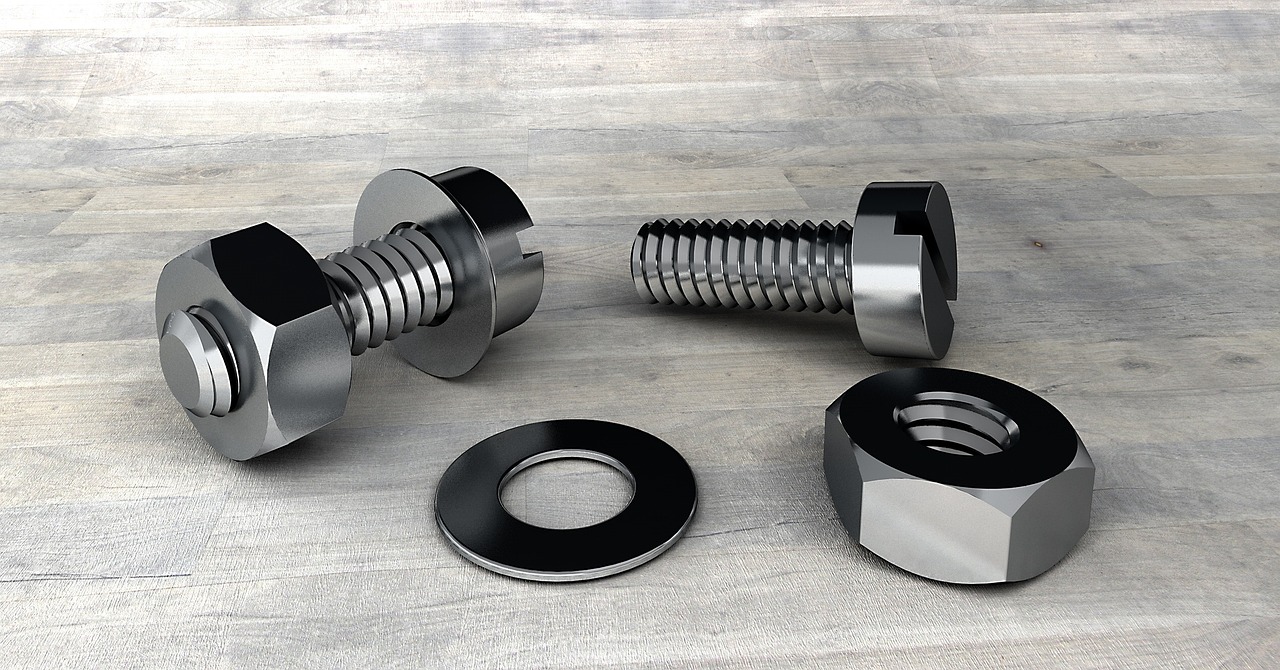
Silk Threads
When it comes to quilting, are often regarded as the crème de la crème. Their luxurious feel and stunning sheen can elevate any quilting project, making them a preferred choice for quilters who want to add a touch of elegance. But why are silk threads so special? Well, they possess a unique combination of characteristics that make them ideal for certain applications. For starters, silk threads are incredibly smooth, allowing for easy stitching and minimal friction. This means that your sewing machine will glide effortlessly, reducing the chances of snagging or breaking.
Another fantastic aspect of silk threads is their luster. The natural sheen of silk can bring a beautiful, shimmering effect to your quilts, enhancing their visual appeal. Whether you're making a delicate wall hanging or a cozy quilt for your bed, using silk can add that extra wow factor. However, it’s important to note that silk threads are not just about looks; they also offer strength and durability. While they may seem delicate, silk threads can withstand tension and stress, making them suitable for both hand and machine quilting.
So, when should you consider using silk threads in your quilting projects? They are particularly well-suited for:
- Decorative stitching: Silk threads can make your decorative stitches pop, adding depth and dimension to your work.
- Appliqué: The smoothness of silk helps create clean edges and beautiful finishes, enhancing the overall look of your appliqué.
- Quilting with fine fabrics: If you're working with delicate materials like tulle or chiffon, silk threads can provide a gentle touch without causing damage.
However, working with silk threads also requires a bit of care. They can be a tad slippery, so it’s crucial to choose the right needle and tension settings on your sewing machine. A needle with a larger eye, such as a size 80/12 or 90/14, is often recommended to accommodate the thread without causing it to fray. Additionally, adjusting the tension can help prevent thread breakage. Remember, practice makes perfect, so don’t hesitate to experiment with different settings to find what works best for you!
To ensure that your silk threads remain in optimal condition, proper care and maintenance are essential. Here are some tips to keep your silk threads looking and performing their best:
- Storage: Store silk threads in a cool, dry place away from direct sunlight to prevent fading and deterioration.
- Handling: Always handle silk threads with clean hands to avoid transferring oils or dirt that could affect their appearance.
- Cleaning: If your silk threads become soiled, gently wipe them with a soft, damp cloth. Avoid harsh chemicals or detergents.
In conclusion, silk threads are a fantastic choice for quilters looking to add a touch of luxury to their projects. With their stunning sheen, strength, and versatility, they can truly transform your quilting experience. Just remember to take care of them, and they will reward you with beautiful results!
1. Can I use silk threads for machine quilting?
Yes, silk threads can be used for machine quilting, but it’s essential to adjust your machine’s tension and use the right needle size for optimal results.
2. Are silk threads more expensive than other types of threads?
Silk threads tend to be more expensive due to their luxurious quality and production process. However, many quilters find the investment worthwhile for special projects.
3. How do I prevent silk threads from breaking while sewing?
To prevent breakage, ensure you are using a suitable needle, maintain the correct tension, and avoid pulling the thread too tightly during stitching.
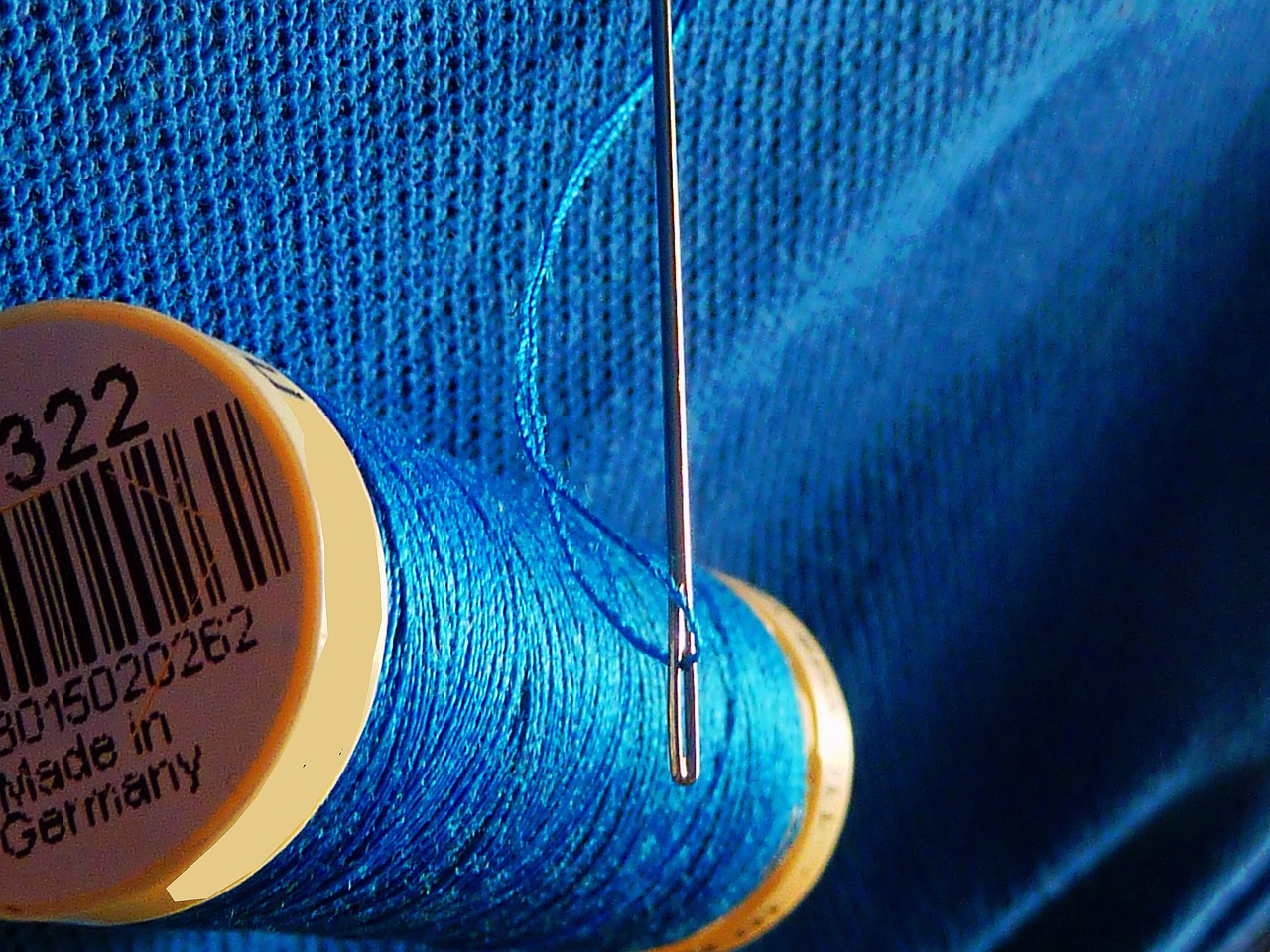
Care and Maintenance of Silk Threads
Silk threads are not just any ordinary threads; they are a luxurious choice that can elevate your quilting projects to a whole new level. However, to keep these delicate fibers in pristine condition, proper care and maintenance are crucial. Think of silk threads as the fine wine of the quilting world—they require a bit of attention to truly shine. So, what exactly should you do to ensure your silk threads remain vibrant and strong? Let's dive into some essential tips!
First off, it's important to store silk threads correctly. Keep them in a cool, dry place away from direct sunlight. Sunlight can cause the colors to fade, diminishing the beauty of your quilting. A dedicated storage container with compartments can help prevent tangles and keep your threads organized. If you're using a thread box, opt for one that has a lid to protect against dust and moisture.
Next, when it comes to cleaning silk threads, it's best to avoid washing them unless absolutely necessary. If you do need to wash your silk threads, hand wash them gently in cold water with a mild detergent. Avoid wringing or twisting the threads, as this can cause damage. Instead, lay the threads flat on a clean towel to air dry, keeping them away from any heat sources that could warp or shrink them.
Another vital aspect of maintaining silk threads is to be cautious when using them in your sewing machine. Ensure that your machine is set to the appropriate tension settings for silk. Too much tension can lead to breakage, while too little can cause looping and puckering. If you're unsure, do a few test stitches on scrap fabric to find the perfect balance.
Lastly, be mindful of the environment in which you work. Excessive humidity can weaken silk fibers, while dry conditions can make them brittle. Consider using a humidifier in your sewing space during dry seasons, or keep a small bowl of water nearby to maintain moisture levels. Your silk threads will thank you for the extra care!
In summary, taking care of silk threads is akin to nurturing a delicate flower. With the right storage, gentle cleaning, proper sewing machine settings, and a mindful environment, you can ensure that your silk threads remain in top-notch condition, ready to bring elegance and beauty to your quilting projects.
- How should I store silk threads?
Store in a cool, dry place, away from sunlight, preferably in a dedicated container. - Can I wash silk threads?
Yes, but hand wash them gently in cold water with mild detergent and avoid wringing. - What tension should I use for silk threads in my sewing machine?
Adjust the tension based on test stitches; too tight can break, too loose can cause looping. - How can I maintain humidity for my silk threads?
Use a humidifier or keep a bowl of water nearby to prevent brittleness.
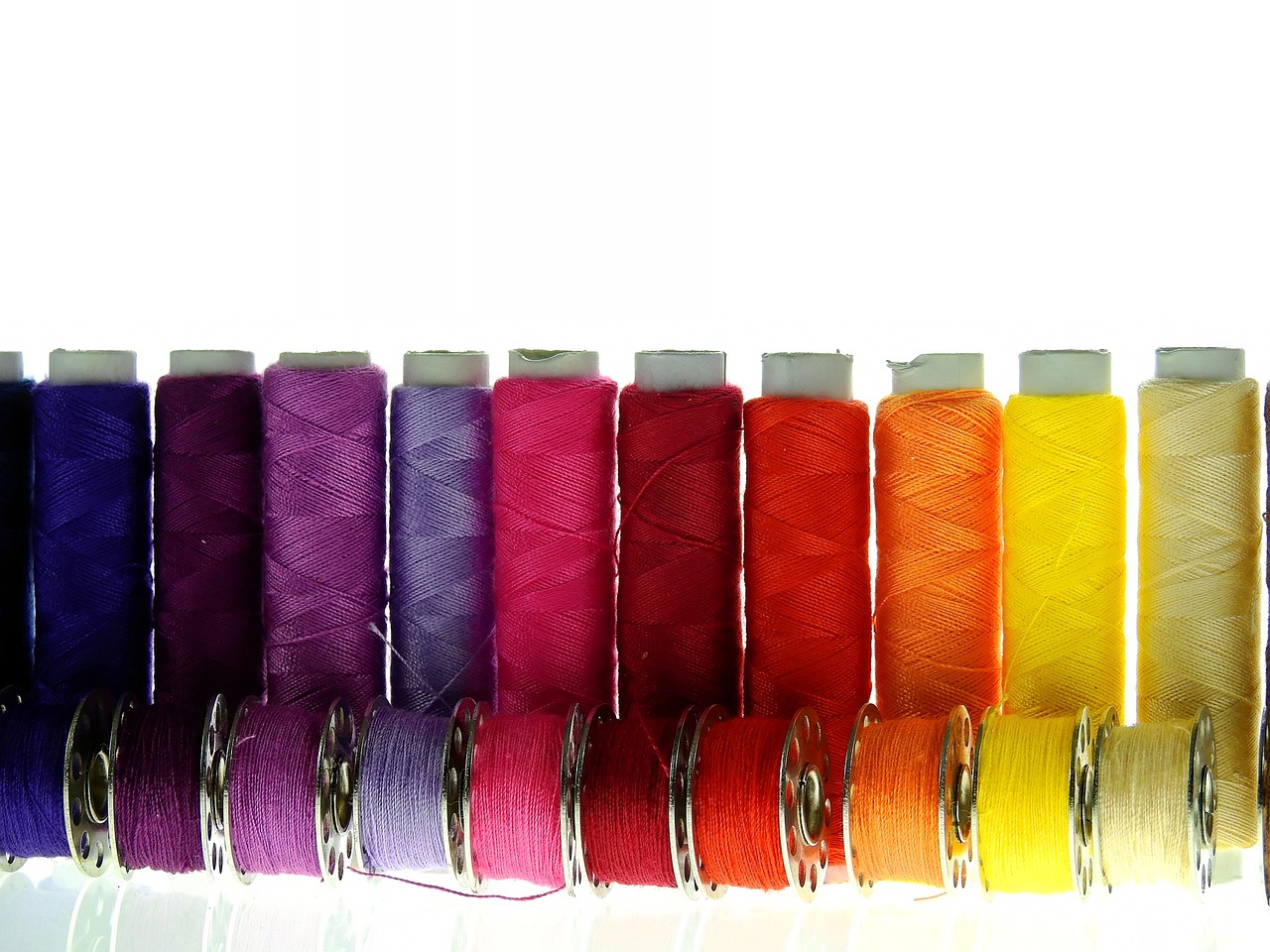
Specialty Threads
When it comes to quilting, specialty threads are like the secret sauce that can elevate your projects from ordinary to extraordinary. These threads are designed to add unique textures, colors, and effects that can transform a simple quilt into a stunning work of art. From metallic threads that shimmer in the light to variegated threads that blend multiple colors seamlessly, the options are as diverse as your imagination. But with so many choices available, how do you know which specialty thread to use for your next quilting adventure?
One of the most exciting aspects of specialty threads is their ability to create visual interest and depth in your quilting. For instance, metallic threads can add a touch of glamour, making them perfect for holiday-themed quilts or any project where you want to shine. On the other hand, variegated threads offer a beautiful gradient of colors that can enhance the overall design without overwhelming it. Imagine stitching a floral pattern where the colors change subtly with each stitch—it's like painting with thread!
Here’s a quick look at some of the most popular specialty threads you might consider:
- Metallic Threads: These threads contain a thin metallic foil wrapped around a core of polyester or nylon, giving them that eye-catching sparkle. They are ideal for embellishments and decorative stitching.
- Variegated Threads: Featuring multiple colors on a single spool, these threads can create stunning effects as the colors blend together in your stitches. They’re great for adding depth to your quilting designs.
- Glow-in-the-Dark Threads: Perfect for kids’ quilts or Halloween projects, these threads absorb light and glow in the dark, adding a fun twist to your creations.
- Textured Threads: These include threads like chenille or boucle, which add a soft, fluffy texture to your quilts. They’re perfect for creating a cozy, inviting look.
However, using specialty threads can come with its own set of challenges. For example, metallic threads can be a bit tricky to work with, as they tend to fray or break if not handled properly. It’s essential to use the right needle, usually a larger size, and to adjust your tension settings to accommodate these unique threads. Additionally, some specialty threads may require specific care instructions, especially when it comes to washing and storing your finished quilts.
Incorporating specialty threads into your projects can be a game-changer. They allow you to express your creativity and add personal touches that make your quilts truly one-of-a-kind. So, next time you’re planning a quilting project, don’t overlook the magic that specialty threads can bring to your work. Embrace the possibilities, and let your imagination run wild!
Q: Can I use specialty threads in my sewing machine?
A: Yes, most specialty threads can be used in sewing machines, but it's important to check the manufacturer's guidelines. You may need to adjust your machine settings or use a specific needle type for optimal results.
Q: How do I care for quilts made with specialty threads?
A: Care instructions vary by thread type. Generally, it's best to wash quilts on a gentle cycle and avoid harsh detergents. Always check the thread label for specific care recommendations.
Q: Are specialty threads more expensive than regular threads?
A: Specialty threads can be more expensive due to their unique properties and manufacturing processes. However, the added visual appeal and texture they provide often make them worth the investment.
Q: Can I mix specialty threads with regular threads?
A: Absolutely! Mixing specialty and regular threads can create interesting effects and textures. Just be mindful of the tension settings and needle size to ensure a smooth sewing experience.
Frequently Asked Questions
- What is the best type of thread for quilting?
The best type of thread for quilting often depends on your project and personal preference. Cotton threads are favored for their versatility and natural fiber benefits, while polyester threads offer strength and durability. If you're looking for a luxurious finish, silk threads can add a beautiful sheen to your work. Ultimately, it’s about balancing aesthetic appeal with the functional needs of your quilt.
- Can I use regular sewing thread for quilting?
While you can use regular sewing thread for quilting, it’s not always the best choice. Quilting threads are specifically designed to withstand the stresses of quilting, especially through multiple layers. Regular sewing threads may not offer the same durability or strength, which could lead to issues like breakage or uneven stitching.
- What are specialty threads and when should I use them?
Specialty threads, such as metallic, variegated, or embroidery threads, are designed to add unique effects and finishes to your quilting projects. Use them when you want to create standout designs or decorative elements. They can elevate your quilt's visual appeal but may require specific techniques or needles for best results.
- How do I care for silk threads?
Caring for silk threads is crucial for maintaining their quality. Store them in a cool, dry place away from direct sunlight to prevent fading. When using silk threads, avoid exposing them to excessive moisture or heat. If you need to clean them, gently hand wash in cold water with a mild detergent and lay flat to dry.
- Are blended threads worth using in quilting?
Absolutely! Blended threads combine the benefits of different fibers, offering unique properties that can enhance your quilting experience. For example, a cotton-polyester blend can provide the softness of cotton with the durability of polyester. These threads can be particularly useful for projects that require both flexibility and strength.
- What is the difference between embroidery polyester threads and heavy-duty polyester threads?
Embroidery polyester threads are specifically designed for decorative stitching and often have a sheen that enhances visual appeal, making them ideal for embellishments. On the other hand, heavy-duty polyester threads are thicker and stronger, perfect for quilting through multiple layers of fabric or heavy materials. Choose based on the needs of your project!



















